Lingnan spirit
Patriotism is the core of our national spirit and the spiritual bond for the Chinese people and the Chinese nation to unite themselves and for self-improvement. It has inspired generations of Chinese people to strive unremittingly for the development and prosperity of the motherland. Embodied either by the "brave red and gray lion" that goes forward bravely and takes responsibility for the fate of the country, or by the "Lingnan bull" that devotes itself to serving the country and the people, Lingnan spirit is centered on patriotism and best reflected in how Mr. Zhong Rongguang ran the university as its first Chinese president.
Zhong Rongguang, the first Chinese president of Lingnan University

Lingnan University was founded by an American and funded by the church. Formerly known as the "Gezhi Academy" founded in Shaji, Guangzhou, in 1888, it was relocated to Macau in 1900 and renamed "Lingnan Academy". Moved to Kangleyuan, Guangzhou, in 1927, Lingnan University was taken over by the Chinese and renamed "Private Lingnan University". Before the institutional adjustment, Lingnan University had the College of Arts, College of Agriculture, College of Science and Technology, and College of Medicine. Lingnan University is well known and competitive in South China. In October 1952, Sun Yat-sen University was moved to the former site of Lingnan University in Kangle Village, southern suburb of Guangzhou. The two colleges of arts and sciences of Lingnan University were reorganized into Sun Yat-sen University. Therefore, the new Sun Yat-sen University consists of the former Sun Yat-sen University and the two colleges of Lingnan University.
Zhong Rongguang (1866-1942), styled Xingke, was born in Xiangshan County (now Zhongshan City), Guangzhou Prefecture, Guangdong Province. He was a famous educator in modern China and the first Chinese president of Lingnan University. He became a successful candidate in the imperial examinations at the provincial level in 1894, and was famous for his proficiency in stereotyped writing. Later, he joined Revive China Society, created "Bowen Newspaper", "Kebao Newspaper" and others to promote the revolution, and participated in anti-Qing revolutionary activities. In 1898, Zhong Rongguang served as the chief professor in the Chinese language at Gezhi Academy. In 1908, he became the dean of Lingnan Academy. In 1912, he was appointed as the director of the Guangdong Education Department. In 1917, he was appointed as the deputy supervisor of Lingnan Academy. In 1927, Lingnan University was taken over by the Chinese, and Zhong Rongguang was elected as its first Chinese president.
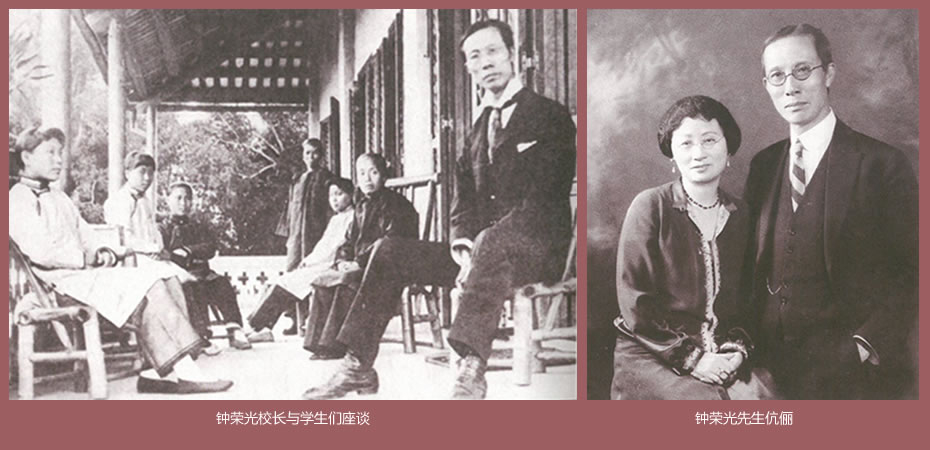
During the 40 years he worked for Lingnan University, he has made important contributions to the development of education of Lingnan University and even the entire South China. He was a famous educator in modern times. In the educational circles of the Republic of China, Zhong Rongguang and Cai Yuanpei were equally famous, and later Zhong Rongguang was put along with Zhang Boling, which shows Zhong Rongguang's important position in the history of education in modern China.
Zhong Rongguang and the adaptation of Lingnan University to China’s conditions
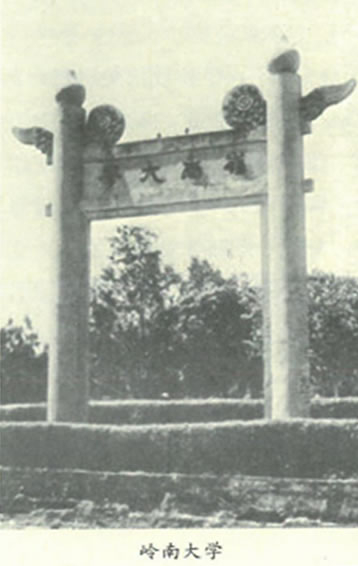
Adaptation of school-running sovereignty to China's conditions
After the Revolution of 1911, the government of the Republic of China promulgated the Regulations on Private Universities, which made it clear that the establishment of private schools must be reported to the Ministry of Education for approval. The church, however, ignored it. Lingnan University was registered in New York, and independent of China's educational sovereignty, for which Mr. Zhong Rongguang, involved in school affairs back then, was worried.
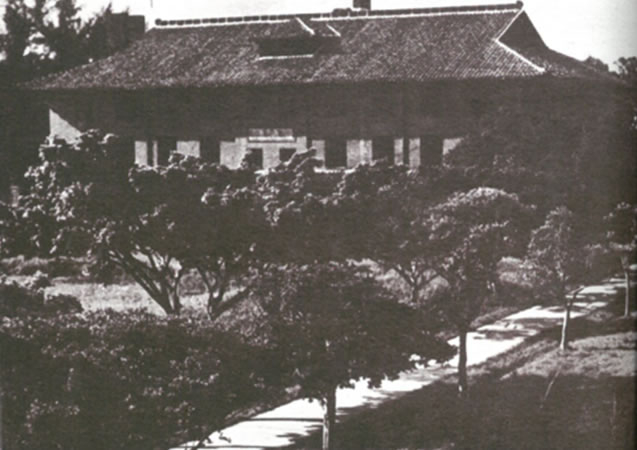

After the "May 4th Movement", Chinese intellectuals found that the so-called "procedural justice" proposed by Western powers could not guarantee national sovereignty and territorial integrity, and then began to resist the imperialist cultural aggression. The Chinese people were eager to take back the autonomous right in education. In January 1927, thanks to the unremitting efforts of Zhong Rongguang and other patriotic teachers and students, Lingnan University was finally taken back from the hands of the American church. It was a landmark achievement like that in recovering concessions and consular jurisdiction.
Adaptation of school funding to China's conditions
Funding helps assure the development of a university. Lingnan University was mainly funded by the New York Board of Directors. Zhong Rongguang was the first to realize that the funding sovereignty determines the development of universities. He believed that Lingnan University must first be economically independent if it was to be taken back.
Funding was a major issue in school running in the old China, in which regard, Zhong Rongguang was exceptional. Garybill, acting supervisor of Lingnan University, acclaimed him once for his ability of winning donations by saying that Zhong Rongguang can turn earth into gold. Lingnan University was on the verge of bankruptcy many times, but eventually pulled through thanks to the funds raised by Zhong Rongguang from the Chinese side.

Adaptation of discipline construction to China's conditions
In terms of discipline construction, President Zhong Rongguang attached great importance to its Chinese characteristics. Zhong Rongguang sympathized with the poor Chinese farmers. He regarded agriculture as the foundation. The agricultural population accounted for more than 80% of the total in Guangdong. China was weak in agricultural technology and short of talents, and faced various factors such as wars and civil strife, however, and thus failed to provide sufficient food for its own people, which made agricultural talents the top necessity. Although the American side did not agree, a discipline structure was built according to China's conditions as insisted on by the Chinese president and with the support of the Chinese government. While cultivating intellectual talents for China, the practice had further liberated Lingnan University from the church. The sericulture science discipline established at Lingnan University used scientific technology to cultivate silkworm eggs, promoted the immunologic silkworm eggs in the Pearl River Delta region, and set up 10 silkworm egg promotion stations. Agriculture depends on the weather. Lingnan University also established an advanced meteorological station to conduct research on the meteorological records of Guangdong for decades and provided credible meteorological data for agriculture and other industries.

President Zhong Rongguang had clear plans for the development of other disciplines in addition to agricultural science. He pointed out the key areas for the development of various disciplines, "For example, the Department of Sociology conducts surveys of urban and rural life, the Department of Education conducts intellectual and psychological tests, the Department of Biology conducts research on plant pathology, the Department of Chemistry conducts field analysis, mineral analysis, and experiments on soymilk, wine, tea and others. All the disciplines are seeking applicability in our country and necessary for the improvement of society and production."
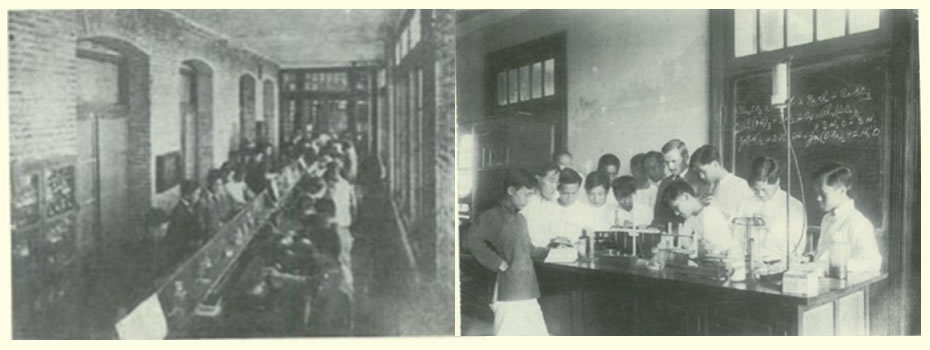
President Zhong Rongguang was committed to the development of medicine in hope of helping more Chinese people. In 1930, the Board of Directors of Lingnan University and the Board of Directors of Boji Hospital discussed joint operation. Several meetings were held and it was decided that Boji Hospital should be handed over to Lingnan University. Funds were raised to build the "Dr. Sun Yat-sen Memorial Hospital" at the former site of the school, to commemorate Sun Yat-sen that once studied here. Later, The Hackett Medical College was merged with Boji Hospital affiliated to Lingnan University and named "Dr. Sun Yat-sen Memorial Hospital" as a school of Lingnan University.
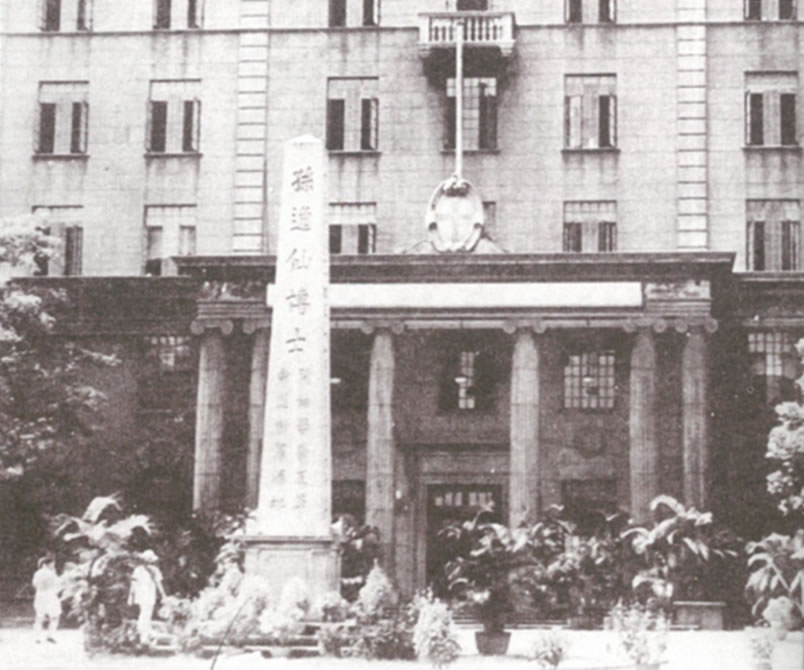
On the square in front of the school stands a monument with the inscriptions: "The cradle where Dr. Sun Yat-sen began to study medicine and initiated the revolutionary movement", and "Erected at the commemorative meeting on November 2 of the 24th year of the Republic of China". People from south of the Five Ridges ardently supported the revolution advocated by Mr. Sun Yat-sen, and deeply admired Mr. Sun Yat-sen for his great personality, his lifelong contributions to the country, and his indomitable revolutionary spirit, and therefore erected a monument at Boji Hospital, which later became the affiliated hospital of the School of Medicine of Lingnan University where he studied to commemorate his relationship with Lingnan.
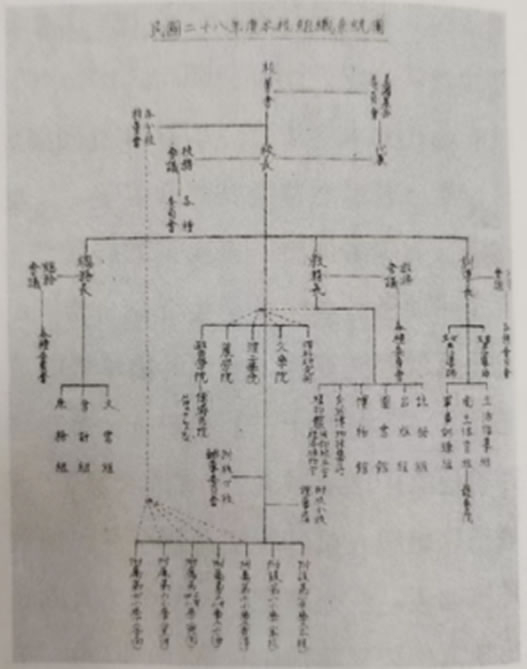
In terms of curriculum setting, Lingnan University launched courses up to unified standards after it was taken back in 1927, including 42 courses in the Chinese language and literature, 22 courses in history, and 8 courses in philosophy. Courses about Christianity, Bible and religion were almost removed. After the outbreak of the Anti-Japanese War, Lingnan University, to adapt to the then conditions, added subjects related to the Anti-Japanese War and nation building, and strengthened military training and rescue training to prepare talents for the Anti-Japanese War and future reconstruction.
Zhong Rongguang and patriotic education in Lingnan University

Lingnan University was originally established by American missionaries. It adhered to do missionary work in school running, but neglected the influence of Chinese people's nationalism and patriotism. As Chinese, on the one hand, Zhong Rongguang knew about the psychology and emotions of the Chinese people, sympathized with them, and understood how the nationalism arose among the Chinese people for being oppressed by foreign enemies. On the other hand, he knew more clearly than ever what China needed back then in practical terms - practice-oriented talents rather than religious ones.
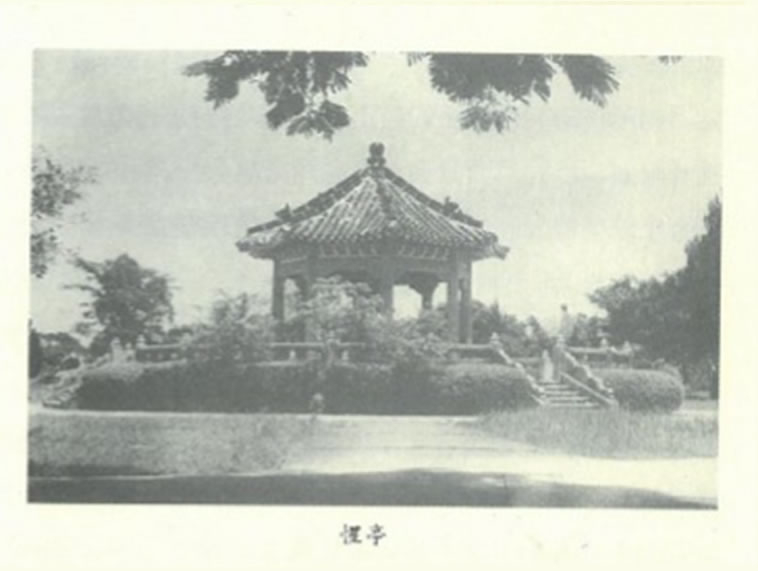
Zhong Rongguang's educational thought is centered on patriotism. During his stay at Lingnan University, he adhered to the school-running philosophy of "implementing personal education, cultivating talents in science, and satisfying the needs of China". His many important speeches reflected his emphasis on patriotic education.
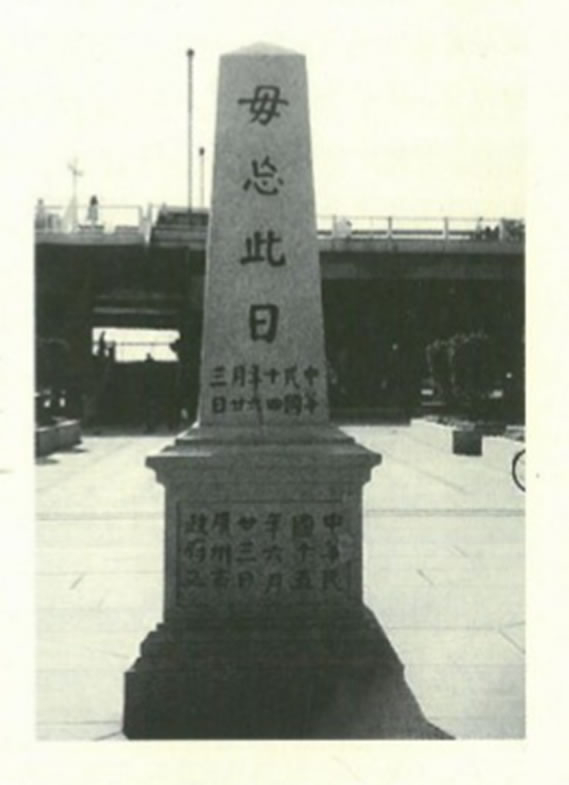
(On June 19, 1925, workers in Hong Kong, under the leadership of Chinese Communists Deng Zhongxia and Su Zhaozheng, started a general strike to support the people of Shanghai in their struggle against imperialism. On June 23, 1925, a large-scale demonstration was held in Guangzhou. When the marchers passed Shajixi Bridge on the opposite bank of the British and French Concessions in Shamian, they were strafe by the British and French marines. More than 50 people were killed and more than 170 seriously injured)
At the meeting commemorating the first anniversary of the Shaji tragedy, Zhong Rongguang issued an anti-imperialist statement with passion: "The missionary Westerners came here with unequal treaties. All the students should work hard and stand with the masses to overthrow imperialism. In short, we should resist foreigners' aggression, and deal with the attack from the inside based on the principle of non-resistance. If we want to achieve our goals, we must embrace the will to die . . . People will eventually die, but should die for their cause."
Zhong Rongguang's patriotic spirit constantly inspired the teachers and students of Lingnan University to forge ahead.
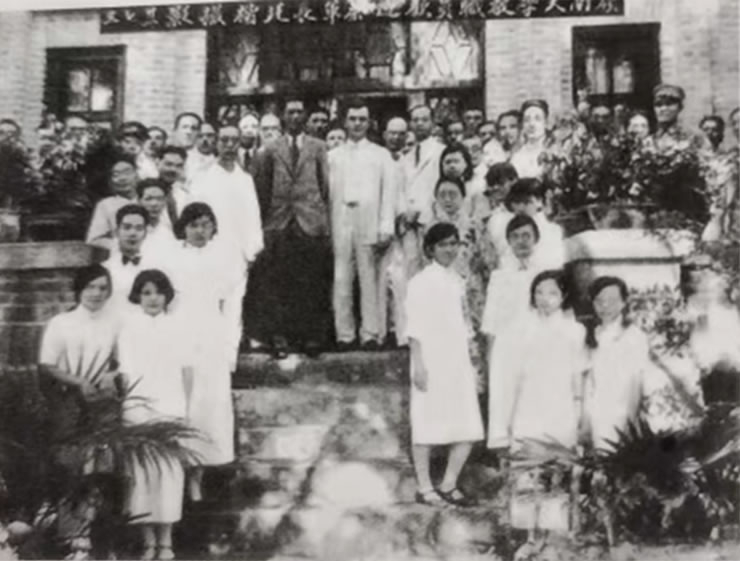
(蔡廷锴后担任第四届全国政协副主席)
Zhong Rongguang taught teachers and students of Lingnan University, "Now our country is still oppressed by imperialists, and our country is still bound by unequal treaties. If we follow Mr. Sun's will, arouse the people, unite the nations around the world that treat us as equals, and work together, we will soon be able to achieve the goal of liberation." Then he called on the participants to distinguish between right and wrong, "The Northern Expedition is a fight between right and wrong, and we should all join the revolutionary front. Then, we can defeat imperialism externally and warlords internally. There are industry circles and academia circles in our university, and the two need to join hands to help each other, join the revolution together, and promote the progress of the revolution." He finally cautioned the students, "Don't forget to save the country as students. We must contribute our part to serving the people."
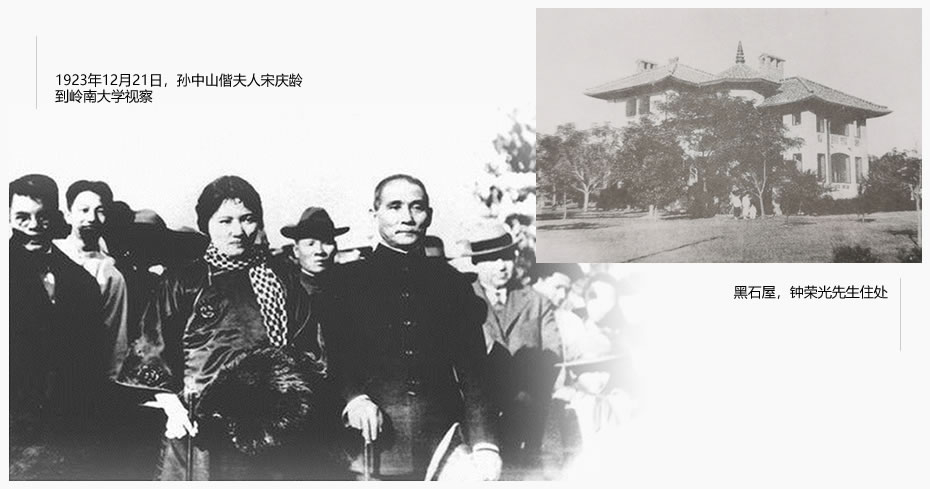
President Zhong Rongguang invited Mr. Sun Yat-sen to give speeches at Lingnan University several times. On December 21, 1923, Sun Yat-sen and his wife Soong Ching-ling visited Lingnan University for the second time. He delivered a speech "Students must aspire to do great things but not be high officials" in Huai Shi Hall, and talked about how the ancient and modern figures won their fame not from officialdom but from the success of their causes. He encouraged students to "do great things but not be high officials".
Sun Yat-sen defied the powerful presence of consuls of the United States, Britain and other countries in Guangzhou, and fiercely condemned the imperialist interference in China's internal affairs by adopting gunboat policy against China as Guangdong government recovered the tariff balance. He said, "Now more than a dozen warships have arrived at Baietan to threaten us. Our ancestors have never suffered such a great shame. Today, the city is under siege. You are scholars and shoulder the responsibility for the country. Is there a way to get rid of the shame? We should start with knowledge and use it to save China."
After the speech, Sun Yat-sen was invited to the Black Stone House where Zhong Rongguang lived for a chat over tea, and they continued to condemn the policy of imperialist aggression.
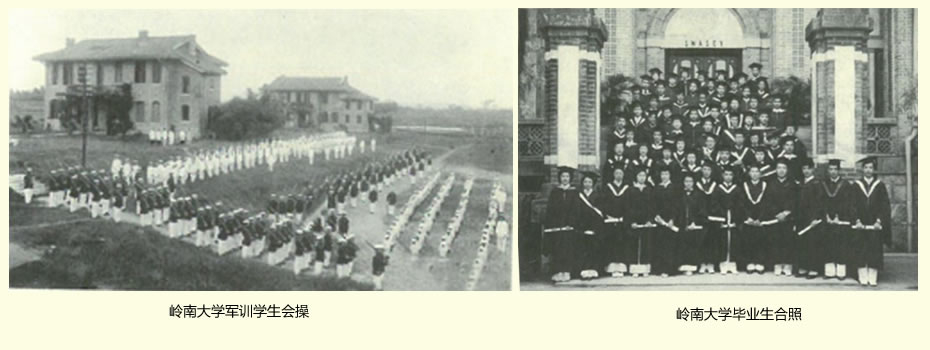
Zhong Rongguang insisted on patriotic education for students, mainly reflected in the promotion and application of the Chinese language in actual teaching. After Zhong Rongguang became the president of Lingnan University, he put forward the idea of making the Chinese language official. He said: "The home front should be well prepared before the Northern Expedition. The school and authorities have plans in various aspects, and it should be most noted that the Chinese language is regarded as the official language, so that not only people within Lingnan University but also all in China can be united."
Zhong Rongguang believed that education is not just about imparting knowledge. According to Shishuo written by Han Yu in the Tang Dynasty, teaching aims to propagate the doctrine, impart professional knowledge, and resolve doubts. The doctrine should be propagated before knowledge is conveyed and doubts removed. Teachers impart morality, and the greatest morality lies in patriotism. Traitorousness is immoral, which is also the traditional concept of China. Zhong Rongguang closely linked patriotic thoughts with educational thoughts, which has been used as a reference by future generations.
Looking back, the education provided by Lingnan University, on the one hand, was to cultivate professionals with scientific knowledge for the country, and on the other hand, was to train personality and endow students with the spirit of sacrifice for the country. Since the founding of Lingnan University, the school spirit has been shaped, most notably manifested by mutual care and assistance and courage to serve. People in the society call it "Lingnan Spirit", and the core essence of "Lingnan Spirit" is the spirit of patriotism. The school-running philosophy featuring loyalty to the country will also inspire future generations to keep forging ahead.



